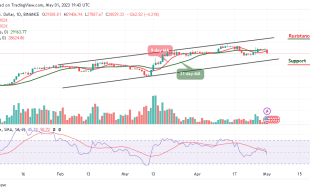Join Our Telegram channel to stay up to date on breaking news coverage
The French Financial Markets Authority (AMF) has announced a “fast track” option for licensed crypto firms in France to comply with the upcoming Markets in Crypto-Assets (MiCA) regulations.
AMF Announces “Fast Track” Option for Crypto Firms in France to Comply with MiCA Regulations
Over the next 18 months, the AMF intends to facilitate the transition of French providers of digital asset services (PSANs) to MiCA regulations by providing guidance. The AMF is exploring the possibility of a fast-track process for these companies to ensure they comply with MiCA regulations at the earliest opportunity.
The AMF has recently announced that it is actively considering a “fast track” option to ensure that French providers of digital asset services (PSANs) comply with the MiCA regulations as soon as possible.
The MiCA regulations, which are set to come into effect from the beginning of 2025, aim to establish a comprehensive and standardized regulatory framework for crypto assets across all member states of the European Union (EU).
With the transitory period of the next 18 months in mind, the AMF has prioritized guiding the transition of French providers of digital asset services (PSANs) towards complying with the MiCA regulations.
This move is in line with the AMF’s goal to ensure that all stakeholders in the French digital asset ecosystem are prepared for the new regulatory landscape.
The fast track option will allow them to operate within the new regulatory framework and continue providing their services to customers without any disruption. By doing so, the AMF hopes to create a smooth and efficient transition process, ultimately benefiting both the providers and their customers.
The AMF is currently seeking to address several areas that require improvement in order to ensure compliance with MiCA regulations.
To be more specific, they are focused on addressing gaps in regulations related to fund provision for crypto companies, implementing effective conflict of interest policies, and aligning the documentation requirements under both AMF and MiCA regulations.
MiCA Regulations and the Future of Crypto Firms in France
In France, crypto firms can choose between two types of licenses: a “simple” option with less strict requirements or the more rigorous “enhanced” option that aligns with MiCA regulations.
Currently, all 60 crypto firms registered with the AMF in France have opted for the “simple” license, which means they will need to switch to the MiCA-compliant license in order to comply with the new regulations.
However, this will not happen until they meet the requirements. Any new crypto firm registering after January 2024 will be required to apply for the more stringent, MiCA-compatible license right from the start.
The option with more strict requirements has stronger measures in place for preventing money laundering, keeping customer assets secure, reporting to regulatory bodies, and disclosing risks and conflicts of interest in detail to better safeguard consumers.
It’s important to keep in mind that crypto firms in France have two licensing options, and those regulated under either option are restricted to operating solely within the country until they comply with MiCA regulations. However, after obtaining approval under MiCA, these firms can benefit from the European passport, allowing them to expand their services across all member countries of the European Union.
Following the European Parliament’s recent adoption of the crypto-focused Markets in Crypto Assets Legislation or MiCA, other countries, including Ukraine, have been seen following the EU’s steps and embracing MiCA.
France is the latest country to adopt MiCA. The AMF has announced that it will ensure its existing regulations are updated to facilitate the transition to MiCA. It will collaborate with the European Banking Authority (EBA) and the European Securities and Markets Authority (ESMA) in the next phases of the regulation’s development.
MiCA aims to create a harmonized framework for the regulation of cryptocurrencies and other digital assets within the EU. The regulation covers various aspects of the crypto industry, including custody, issuance, and trading of digital assets.
Key provisions of the proposed MiCA regulation include mandatory authorization for all crypto asset service providers, rules around custody of crypto assets, disclosure requirements for whitepapers, and enhanced investor protection measures.
MiCA is expected to provide greater clarity and legal certainty for businesses operating in the crypto industry, as well as improve consumer protection by setting minimum standards for digital assets.
Is the EU Ahead of the US in Terms of Regulatory Clarity for the Crypto Industry?
The new EU regulation on crypto assets, Markets in Crypto Assets (MiCA), is expected to bring benefits to the EU crypto and blockchain market.
The legal clarity provided by MiCA will foster innovation among financial institutions that have been previously hesitant to launch products and services due to regulatory uncertainty, says Patrick Hansen, Director of EU Strategy and Policy at stablecoin issuer Circle.
The biggest advantage of MiCA is that it will come into force in 2022, giving the EU a chance to provide a unified regulatory framework for crypto assets and related providers. This will help to create consistency and clarity in the industry, which was previously uncertain due to varying regulations across different EU member states.
Stefan Berger, the European Union Parliament rapporteur for MiCA, has highlighted that the European crypto asset industry currently enjoys greater regulatory clarity than its US counterpart.
European policymakers have been making efforts to create a dependable regulatory framework that instills confidence through legal clarity via MiCA, resulting in the European crypto asset industry having more regulatory clarity than the US. Nevertheless, the crypto and blockchain sector is constantly evolving, and tokenization is progressively becoming an essential element of our everyday lives and the financial sector.
As a result, European lawmakers are closely examining the regulation of NFTs, the next frontier in the industry. Berger notes that the European Parliament is exploring what type of regulation would best serve the industry and consumers.
While MiCA provides clarity on many aspects of crypto asset regulation, certain technical standards and guidelines still need to be defined, which will ultimately determine its practical success.
Apart from MiCA, the EU is also working on a new Anti-Money Laundering rulebook and reviewing the Payment Services Directive 2 (PSD2), both of which will affect crypto companies.
In addition, the European Commission plans to release a detailed report on decentralized finance (DeFi) in 18 months, which could result in more regulatory action.
Although MiCA is a step forward in creating a unified regulatory framework for crypto in the EU, the industry is constantly evolving, and regulators need to remain alert to ensure their policies remain up to date.
Related Articles
Join Our Telegram channel to stay up to date on breaking news coverage


